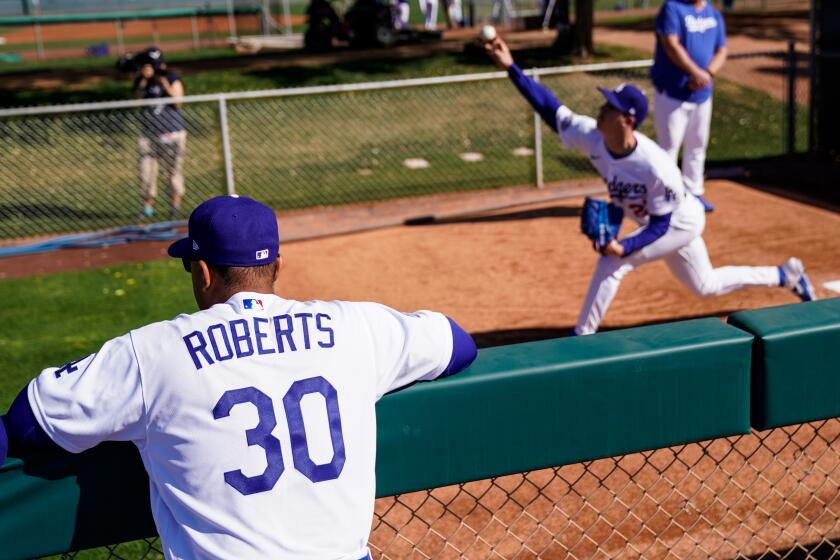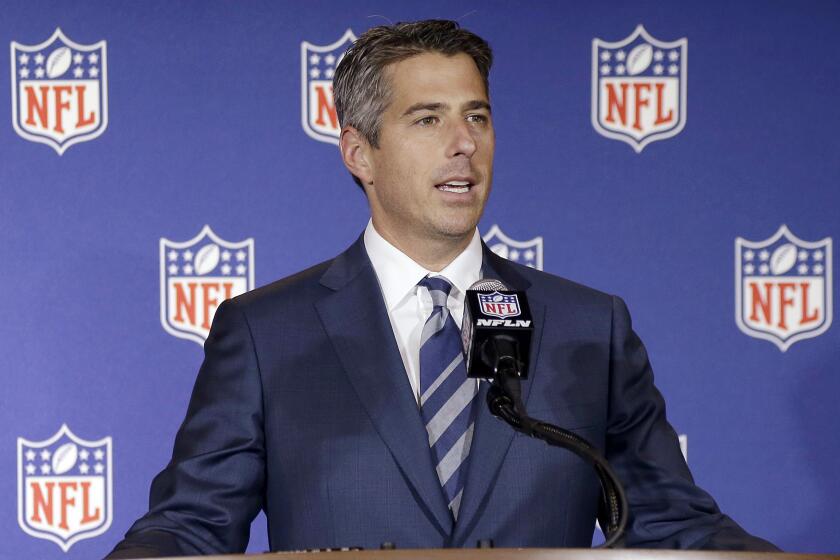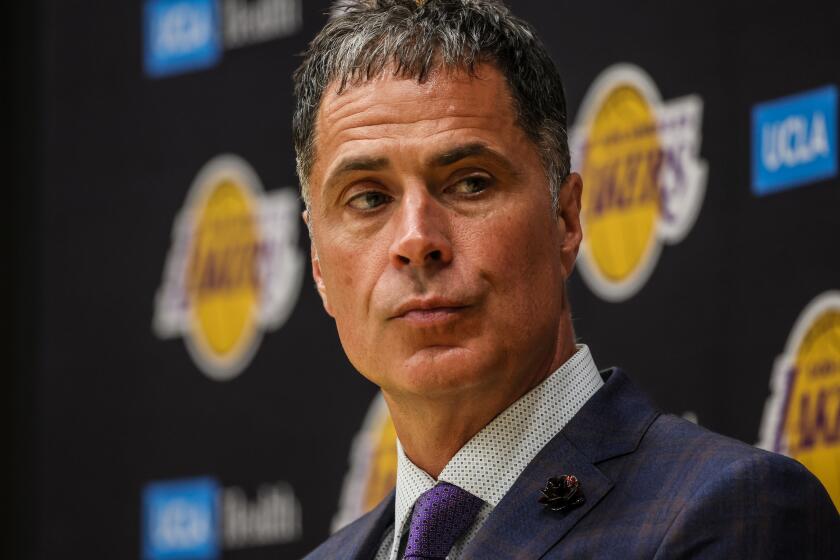MLB players’ union pitches 114-game season, but makes no movement on pay

- Share via
Five days after major league owners asked Mike Trout to play for about $8 million this season, the players’ union replied with a proposal under which Trout would play for about $25 million.
The union’s counter-proposal, delivered to owners Sunday afternoon, calls for a 114-game season that would start June 30 and end Oct. 31, followed by a 14-team postseason. The proposal envisions more doubleheaders than usual.
The offer is almost certainly a nonstarter for owners. The players have not retreated from their position that a March 26 agreement entitles them to full prorated pay — that is, about 50% of previously guaranteed salary for the 82-game season the owners had proposed. The owners responded with a sliding scale that would have paid players from 22% to 46% of their salaries, with the greatest cuts assessed to the highest salaries. Under Sunday’s proposal, the additional games mean that owners would pay players about 70% of their salaries.
Still, if the two sides shift the argument from the language in the March 26 agreement to a dispute over percentage of salary, there could be a path toward a compromise.
The Dodgers and Angels are among at least eight MLB teams to increase baseball activities in the last week at their home stadiums and spring training sites.
The owners pitched a season that would start in early July, with the postseason in October because of concerns about a second wave of the coronavirus this fall. If the postseason cannot be played in November, the players proposed to defer $100 million in salaries over the next two years.
The players also proposed a $100-million salary advance when training camp resumes, presumably in mid-June.
Under the proposal, players who qualify as high risk if they contract the coronavirus — or if they live with someone who is at high risk — could choose not to play this season and still receive full salary and service time. Any other player could choose not to play, but his compensation would be limited to service time.
Casey Wasserman, leader of the sports and entertainment division of an L.A. county task force, authored the plan along with all nine major pro sports teams.
More to Read
Go beyond the scoreboard
Get the latest on L.A.'s teams in the daily Sports Report newsletter.
You may occasionally receive promotional content from the Los Angeles Times.













